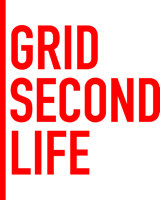Content
Make it clear that drinking will not be allowed in your home and that you may not be able to attend events where alcohol is being served. Once you’ve https://goodmenproject.com/everyday-life-2/top-5-tips-to-consider-when-choosing-a-sober-house-for-living/ made the decision to change, the next step is establishing clear drinking goals. The more specific, realistic, and clear your goals, the better.
Before the drinker seeks assistance, a psychologist can guide the family or others in helping to increase the drinker’s motivation to change. Express your concerns in a caring way and encourage your friend or family member to get help. Try to remain neutral and How to Choose a Sober House: Tips to Focus on don’t argue, lecture, accuse, or threaten. Make meetings a priority – Join a recovery support group, such as Alcoholics Anonymous (AA), and attend meetings regularly. Spending time with people who understand exactly what you’re going through can be very healing.
Evaluating the costs and benefits of drinking
A support group or care program may be helpful for you and your loved ones. These programs are designed to encourage you, teach you about coping with life in recovery, and help you manage cravings and relapses. If you have alcohol use disorder, medication may help you stop drinking while you take it. Keep in mind medication can’t help change your mindset or lifestyle, though, which are just as important during recovery as stopping drinking.
These techniques have been repeatedly proved effective and inexpensive. Long-term studies have consistently demonstrated that once the patient’s own voluntary efforts to cut down on drinking have repeatedly failed, sustained abstinence is the practical answer. Most studies of medications for AUD also include counseling, so it is difficult to assess medication effects without counseling. All three of these therapies have demonstrated their effectiveness.
Understanding Your Options
Alcohol affects virtually every organ system in the body and, in high doses, can cause coma and death. It affects several neurotransmitter systems in the brain, including opiates, GABA, glutamate, serotonin, and dopamine. Increased opiate levels help explain the euphoric effect of alcohol, while its effects on GABA cause anxiolytic and sedative effects.
Is there a pill to stop drinking?
Naltrexone is a medicine used to treat alcoholism (addiction to alcohol). It reduces your desire for alcohol. It comes under the brand names ReVia or Vivitrol. After you quit drinking, naltrexone may help you stay sober for a long time.
A single Naltrexone tablet is generally taken once a day, either with or without food. It may also be taken once every other day, once every third day, or once every day except Sunday (or other designated day of the week). If a patient forgets to take a dose and it is not close to the time when the next dose is taken, they should take the dose as soon as possible.
Who Needs Alcoholism Treatment
It’s important to give yourself time to ease back into the swing of things. While there is no one-size-fits-all alcoholism treatment plan, many rehab facilities follow a general guideline. These offer a baseline for putting together a comprehensive recovery plan that will provide the greatest chance for lasting sobriety. There is no right or wrong time to seek treatment for an AUD.
- (A “drink” means 1.5 ounces of spirits, 5 ounces of wine, or 12 ounces of beer, all of which contain 0.5 ounces of alcohol.
- Your treatment provider will be able to give you medications in order to help alleviate some of the pain.
- When selecting the best alcoholism treatment option for you, it is advisable to take a number of steps so that you can make the most informed decision.
- Heavy drinking can cause physiological changes that make more drinking the only way to avoid discomfort.
Most residential treatment programs include individual and group therapy, support groups, educational lectures, family involvement, and activity therapy. Naltrexone was initially used to treat Opioid addiction, including Heroin treatment. Recovering addicts taking Naltrexone no longer experienced the pleasurable sensations association with Opioid use and were therefore less motivated to continue drug abuse.
